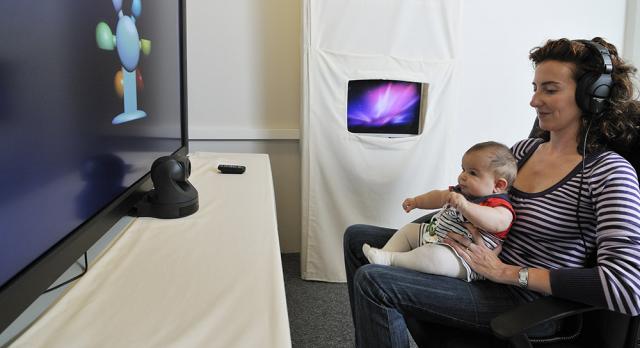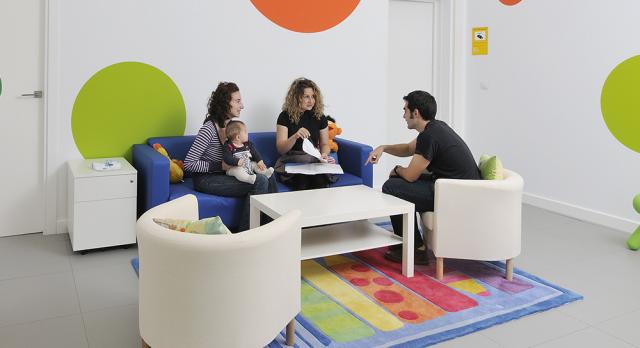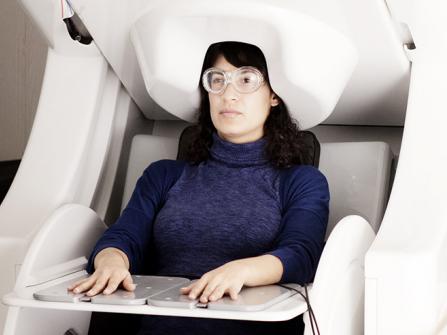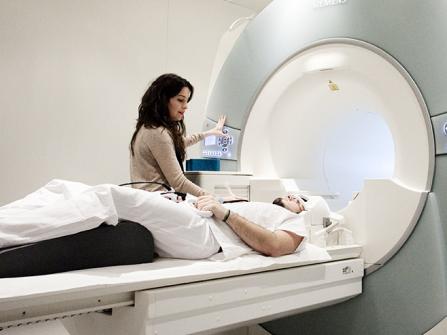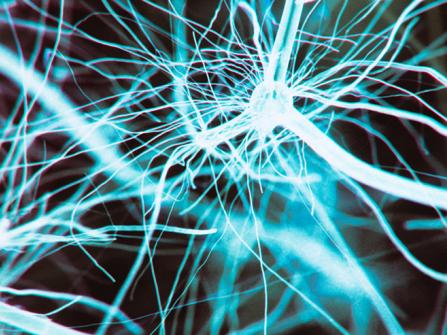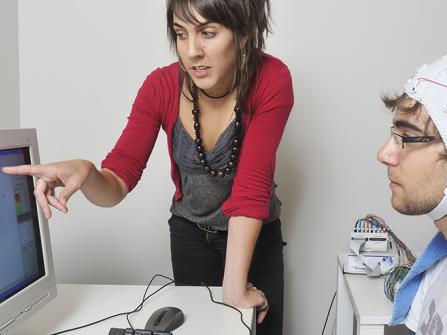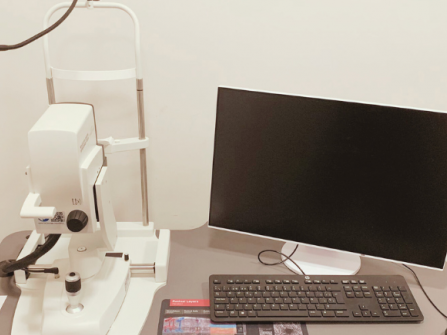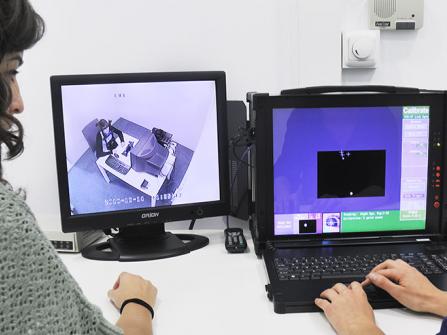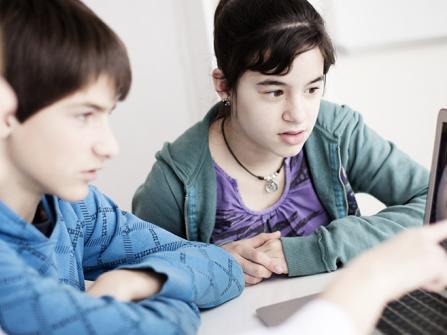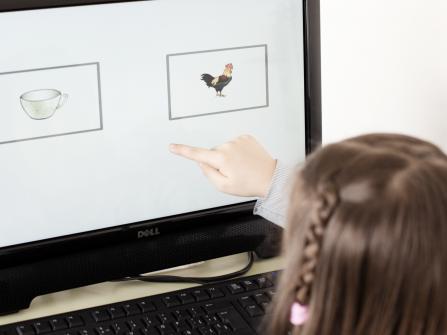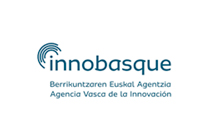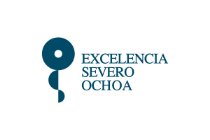 babyLAB
babyLAB
In our state-of-the-art infant lab, several methods and techniques are available to investigate the first steps in human language development. The behavioral set-up allows us to use the Visual Habituation, Head-turn Preference, and Intermodal Preferential Looking procedures to assess preverbal infants’ general language skills (from 3to 12 months of age) and to investigate older infants’ syntactic and lexical knowledge up to 28 months of age.
Which techniques are used in the Babylab?
Near Infrared spectroscopy (NIRS) is a neuroimaging technique that records brain activity by measuring oxygen saturation in the blood. To do this, we place a cap containing a series of emitters and receivers of infrared light that is harmless to the baby. At BCBL we have these two devices:
NIRX: The NIRScout (NIRx) equipment is a functional near-infrared spectroscopy system (fNIRS) that is actively used at BCBL. This system allows neuroimaging studies in a flexible configuration and is suitable for research with participants of all ages, from babies to adults. Its design facilitates the collection of high quality data in developmental and cognitive studies.
Lumo NIRS: The Gowerlabs LUMO system is an advanced fNIRS system with a modular and portable design, with more than 500 channels and short distance channels that improve spatial resolution and signal sensitivity. It is particularly suitable for studies on newborns and allows for ‘hyperscanning’ experiments to explore social interaction between individuals.
Electroencephalography is a safe, non-invasive technique that measures neural activity in the brain. The signals generated by neurons are recorded by a cap with small sensors, specifically designed for use with infants.
Eye-tracking allows us to measure precisely the eye movements and the location and duration of gaze fixations. To do this, we place a sticker on the baby's forehead as a reference point, so the camera can follow all the movements of one pupil. The procedure is completely respectful and harmless for the baby.
Behavioral studies measure babies' natural responses, such as the duration of their attention when they encounter visual or auditory stimuli. This allows us to study the mechanisms underlying our cognitive abilities.
The BCBL babyLAB offers a cutting-edge research venue within an exceptional environment for comprehensively investigating monolingual and bilingual language development.
If you are interested in participating in our studies, you can call 943 309 300, send an e-mail to baby@bcbl.eu or contact us via Whatsapp at 664423117.
